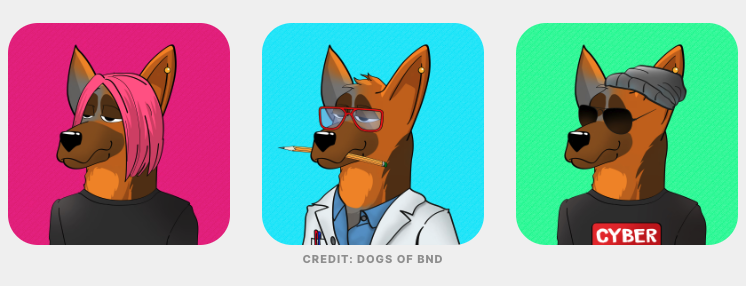
TL;DR
-
German intelligence service, Bundesnachrichtendienst (BND), has just launched an NFT collection that puts their applicants to the test.
-
To hit one, you must first go through a “cryptographic treasure hunt” designed to understand how people solve problems related to cybersecurity.
-
The role is for a blockchain cybersecurity engineer – and the best way to know if someone can get the job done is to see them do the job.
Full story
We’re still not sure if this is folklore, or if he actually said it – but presumably Bill Gates once said, “I choose a lazy person to do a tough job. Because a lazy person will find an easy way to do it.”
“Work smart, not hard” is ingrained in lazy people; and a result of that is discovering more efficient ways of working.
Well, German intelligence, Bundesnachrichtendienst (let’s call them ‘BND’), has just launched an NFT collection that puts their applicants to the test.
This is how it works:
BND has created a collection of 999 dog NFTs.
To hit one, you must first go through a “cryptographic treasure hunt” designed to understand how people solve problems related to cybersecurity.
Only those who pass the cryptographic treasure hunt (exposing the right data) can hit the NFTs.
This is our opinion:
Firstly, we like to see the innovative approach.
The role is for a blockchain cybersecurity engineer – and the best way to know if someone can get the job done is to see them do the job.
Second, a “cryptographic scavenger hunt” has an air of marketing virality.
There are so many jobs these days that it’s hard to publicize it. An approach like this could easily reach a bunch of candidates who otherwise wouldn’t have heard of the position.
Finally, only about 200 NFTs have been claimed so far. Which means this is either a really tough quest or maybe there just aren’t that many people willing to put in the effort for a role like this.
Be that as it may, while it’s not super repeatable for most companies, you have to admire this out-of-the-box thinking.


